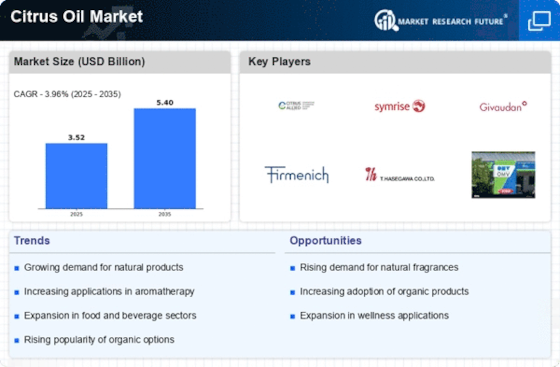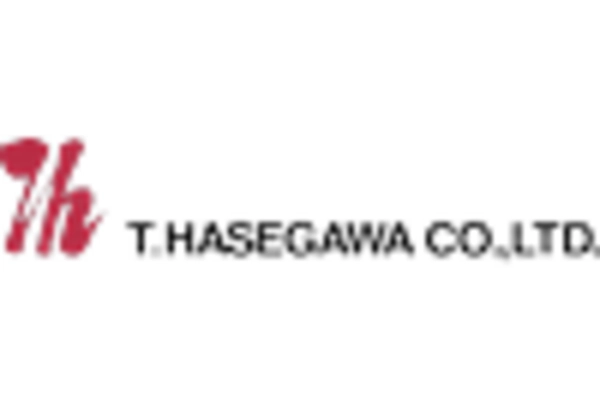Market Analysis
In-depth Analysis of Citrus Oil Market Industry Landscape
The global citrus oil market reached USD 8.5 BN in 2022 and is poised to grow to USD 13.76 BN by 2032, registering a 5.50% CAGR during the review period (2023-2032). The market operates within a dynamic framework influenced by many factors that collectively shape its growth, trends, and consumer behavior. At its core, this market is inherently tied to the popularity and widespread use of citrus fruits as the primary source for producing essential oils. Extracted from fruits like oranges, lemons, limes, grapefruits, and tangerines, citrus oils find versatile applications across diverse industries, including food and beverages, aromatherapy, cosmetics, and household cleaning products. Consumer preferences and the expanding demand for natural and organic products are pivotal in driving the market for citrus oils. Consumers are increasingly drawn towards natural ingredients, triggering a surge in demand for citrus oils due to their natural extraction and perceived health benefits. Renowned for their aromatic qualities and versatility, citrus oils are favored as flavor enhancers, fragrance additives, and cleaning agents, reflecting the market's responsiveness to evolving consumer preferences. The agricultural landscape significantly impacts the Citrus Oil Market dynamics. Fluctuations in citrus fruit production caused by climatic conditions, diseases, or variations in crop yields directly affect the availability and pricing of citrus oils. Weather-related anomalies such as frost or hurricanes in citrus-growing regions can disrupt supply chains, leading to market volatility. Moreover, the cyclic nature of citrus fruit harvest seasons impacts oil production, affecting market availability. Technological advancements and extraction methods are key drivers of market dynamics. Innovations in extraction technologies aim to improve oil yield, quality, and sustainability. Advanced methods such as cold-pressing or steam distillation preserve the natural essence of oils, meeting consumer preferences for minimally processed, high-quality products. Furthermore, ongoing research and development initiatives focus on enhancing extraction efficiency influencing market dynamics. Geopolitical factors and trade dynamics also significantly influence the Citrus Oil Market. Changes in trade policies, tariffs, and regulations governing the import and export of citrus fruits directly impact the global availability and pricing of citrus oils. Political instability or trade disputes among major citrus-producing regions can disrupt supply chains, significantly affecting market dynamics and pricing structures. Health and wellness trends are crucial in shaping the demand landscape for citrus oils. The growing awareness of natural remedies and the rising popularity of aromatherapy drive the demand for essential oils, including citrus oils. Appreciated for their aromatic properties and perceived therapeutic benefits, these oils are utilized in aromatherapy, skincare, and holistic wellness, further boosting the market growth. Sustainability and conservation efforts have gained prominence, influencing market dynamics within the Citrus Oil industry. Companies increasingly adopt sustainable farming practices and environmentally friendly extraction methods to meet consumer expectations for eco-conscious products. Brands prioritizing sustainability resonate with environmentally aware consumers, driving demand for responsibly sourced citrus oils. Competition among market players significantly influences market dynamics. Brands differentiate themselves through product innovation, unique formulations, and effective branding strategies. Strong branding emphasizing product quality, purity, and origin helps companies gain a competitive edge and secure market share in the highly competitive citrus oil market.



















Leave a Comment